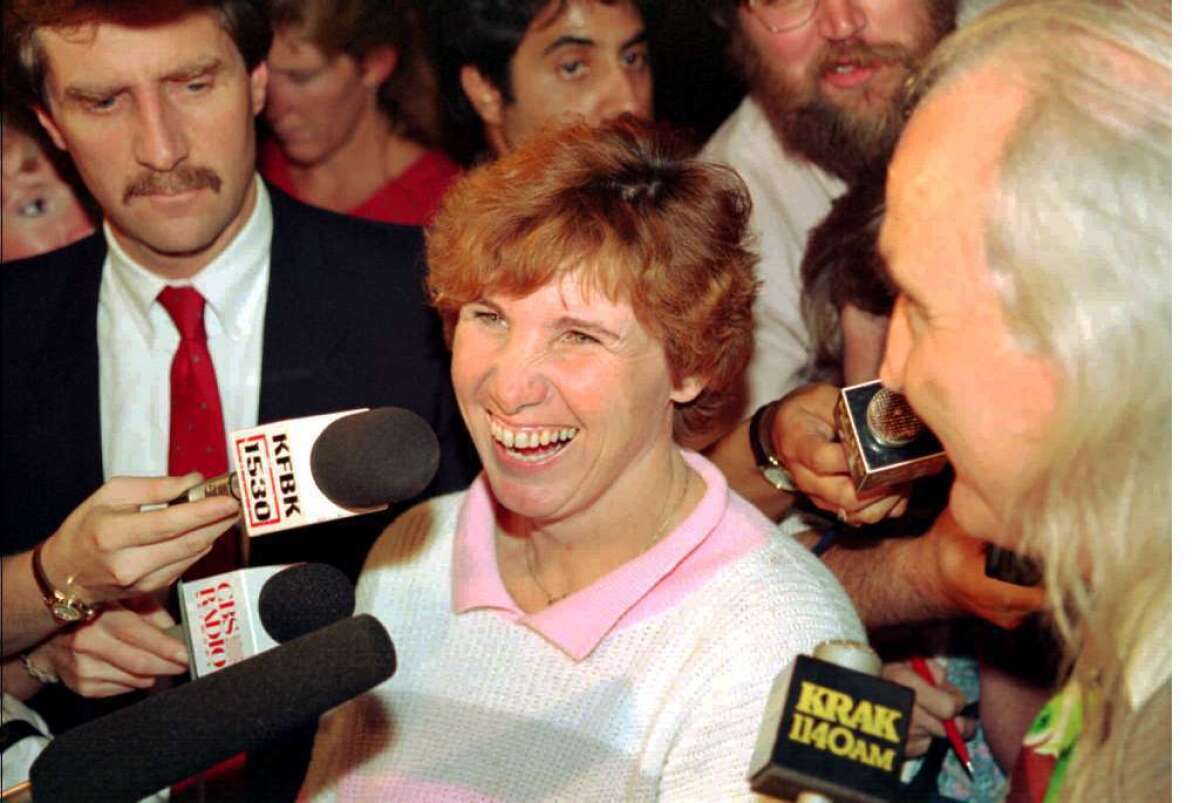Opinion: Does an angry parent killing a child molester ever serve justice?

- Share via
What do you think of a man who has been charged with killing an unarmed man? Inexcusable, right?
Now, would it change your mind if the dead man had molested a child and the accused shooter was the child’s father?
All right, here’s more information: The molestation happened a dozen years ago.
Finally, would it change your thinking to know the dead man had already served time in prison for the crime and paid restitution?
That’s the whipsaw nature of a murder case in Alabama, where Jay Maynor is accused of murdering sex offender Raymond Earl Brooks.
Brooks pleaded guilty in 2002 to molesting Maynor’s young daughter and served 27 months of a five-year sentence; he also paid restitution.
Maynor’s attorney says that although so many years had passed, it’s not premeditated murder but a crime of passion because of “something that happened that same day,” which the attorney called “a catalyst event, a trigger event.”
Maynor’s friend, Jason Lackey, says he was told that that event was a family argument over Maynor’s stepdaughter’s boyfriend, which went incendiary when somebody brought up the 2002 case.
Maynor has already gathered supporters on Facebook, as well as several hundred bucks’ worth of support. It’s an unsettling cheering section for someone who allegedly meted out a private punishment against a sex offender who pleaded guilty and served prison time.
As described so far, this shooting is not like the “clear and present danger” that provoked Texas authorities to decide not to prosecute a father who found a man raping his screaming 5-year-old daughter in 2012. The father beat the man unconscious, then called 911. The man died. Authorities said what the father did was not a crime under Texas law.
It’s not even like the case of Californian Ellie Nesler. In 1993, she was in court, walking to the witness stand during a preliminary hearing related to a man accused of molesting her son. She pulled out a handgun and shot the defendant in the back of the head.
To a lot of people, what she did made sense viscerally if not legally. T-shirts with slogans appeared: “Nice shooting, Ellie.” There was a TV movie about her as a righteous mother.
But it wasn’t a simple story of a mother avenging her son. Nesler was high on meth when she shot the defendant. She also had a criminal record of her own. She pleaded guilty to voluntary manslaughter and was out after three years because of juror misconduct. (She then changed her not-guilty-by-reason-of-insanity plea to a voluntary manslaughter plea and was sentenced to the time she had already served.)
Her son fared worse; he was in and out of juvie and then adult jail, before he landed in prison for 25-to-life for stomping a man to death in an argument over tools.
In the Nesler case and in the Maynor case, the law was already working to one degree or another. The Alabama man had served his time and paid restitution. Nesler’s victim was already being charged when she took it upon herself to be judge, jury and executioner.
Criminal cases in California are filed as “The People versus,” not “the victim versus.” Justice in a democracy cannot be some tit-for-tat clan vendetta, or determined by bribes or bias. It must be the dispassionate act of the people and the state, whose good order and laws have been violated. Vigilante justice erodes the authority and regard for a legal system that can’t be about vengeance or passion.
It may be slow, it may be inconsistent, it may at times be unfair, but the law is foundational to democracy and justice. Time and again, fledgling countries are told that to be taken seriously by the rest of the world, they need “the rule of law.”
And when an Alabama father or a California mother usurps that role, they are not heroes, because vengeance is not justice. And justice, not just someone’s child, becomes a victim too.
Follow Patt Morrison on Twitter: @pattmlatimes
More to Read
A cure for the common opinion
Get thought-provoking perspectives with our weekly newsletter.
You may occasionally receive promotional content from the Los Angeles Times.










